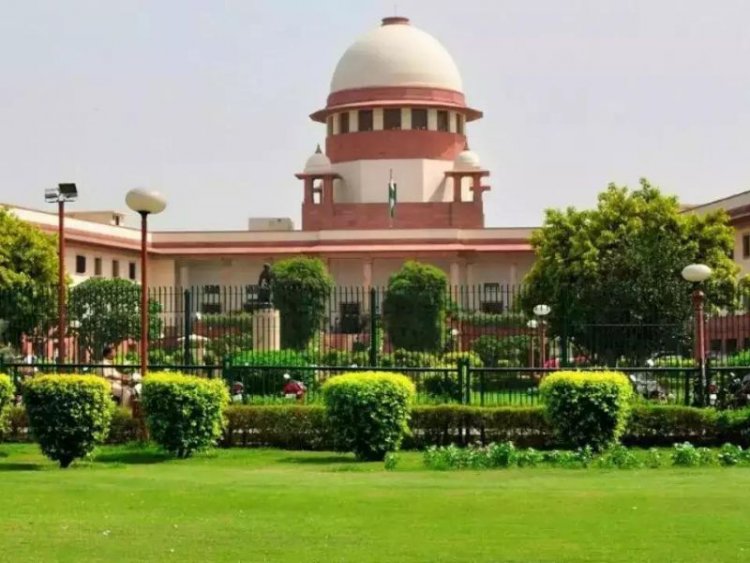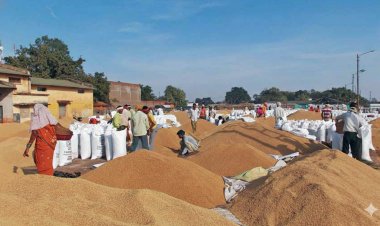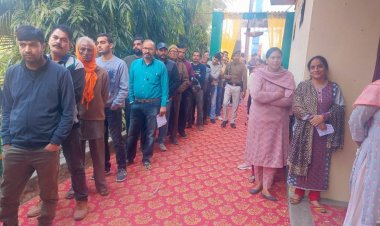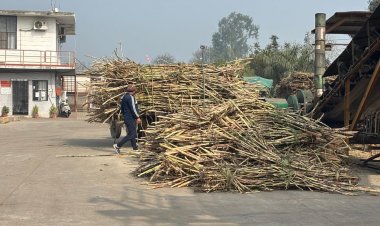SC laments Delhi air pollution, asks 5 states to file affidavits on remedial steps
The Supreme Court has directed Delhi and neighbouring states Punjab, Haryana, Uttar Pradesh and Rajasthan governments to file affidavits enumerating measures initiated by them to control air pollution. The apex court lamented that air pollution persists in the national capital despite several remedial steps having been taken by the Commission for Air Quality Management (CAQM).

The Supreme Court has directed Delhi and neighbouring states Punjab, Haryana, Uttar Pradesh and Rajasthan governments to file affidavits enumerating measures initiated by them to control air pollution. The apex court lamented that air pollution persists in the national capital despite several remedial steps having been taken by the Commission for Air Quality Management (CAQM).
Delhi's air quality index (AQI) remained in the "very poor" category for the fourth consecutive day on Tuesday with the AQI falling in the "severe" category in many areas. The court recognised crop burning as a major contributor to the declining air quality in the capital. Furthermore, it observed that there are reports of a spike in instances of crop burning.
Visuals from Delhi showed the India Gate almost hidden behind smog on Tuesday morning, when the 24-hour average AQI in the national capital was recorded at 327, as per SAFAR-India data. Specifically, Pusa Road and Lodhi Road areas recorded AQI levels of 300 and 306, respectively, both falling under the ‘very poor’ category. Observing that until a couple of decades ago this (Oct-Nov) was the best time in Delhi, the top court said the city is now marred by worsening air quality and it is difficult to even step outside the house.
A three-judge bench headed by Justice SK Kaul directed the five states to file affidavits within a week. "The concerned states should file an affidavit setting forth what steps they have taken to redeem the position. We call upon the states of Delhi, Punjab, Haryana, Uttar Pradesh and Rajasthan to file an affidavit within a week," the bench, also comprising Justices Sudhanshu Dhulia and P K Mishra, said while posting the matter for further hearing on November 7.
The top court also directed the CAQM to submit in a tabular form the result of the relevant period when the problem started and the current ground situation, including parameters like the Air Quality Index (AQI) and the number of incidents of farm fires. The bench said crop burning is one of the main reasons for air pollution in Delhi. The top court had earlier sought a report from the CAQM on steps being taken to control air pollution in and around Delhi.
On October 6, the CAQM had directed government authorities in the National Capital Region to enforce a ban on use of coal in hotels and restaurants and to take punitive measures against polluting industries and thermal power plants as the air quality in Delhi deteriorated. The directions were issued as part of the pollution control plan known as 'Graded Response Action Plan' (GRAP) which is implemented in Delhi-NCR to combat air pollution during the winter season.
The CAQM is an autonomous body tasked with improving the air quality in Delhi and its adjoining areas.



 Join the RuralVoice whatsapp group
Join the RuralVoice whatsapp group







































